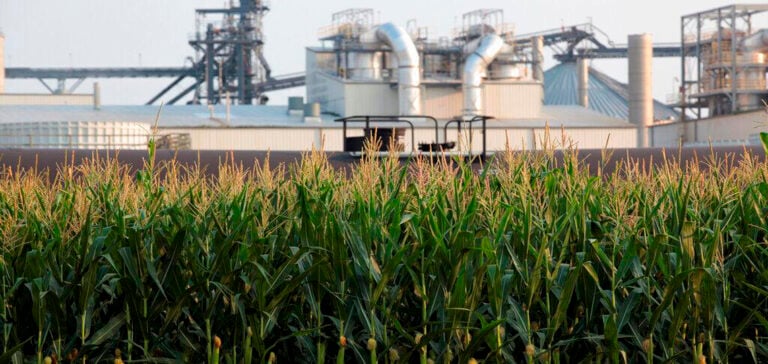The cancellation of the Heartland Greenway Pipeline Project was recently announced by Navigator CO2 Ventures due to the unpredictable nature of regulatory and governmental processes. This decision has major repercussions for the US ethanol industry. In this article, we look at the impact of this decision on a rapidly evolving sector.
An ambitious project
The Heartland Greenway project aimed to capture up to 15 million tonnes of CO2 per year from over 30 ethanol plants in the Midwest and transport it by pipeline to Illinois for sequestration. Industry giants such as POET and Valero had 26 installations on the proposed route. In addition, Navigator had signed a memorandum of understanding to supply approximately 600,000 tonnes per year of CO2 to Infinium for the production of eFuels.
Wide-ranging consequences
While these companies stand out among those most affected by the announcement, Navigator’s decision also has major implications for the agriculture, biofuels and refining sectors. The cancellation came as no surprise to observers of recent hearings in states along the proposed route. In recent months, Navigator and Summit Carbon Solutions (another major CO2 pipeline company) have struggled to obtain the necessary permits for their projects.
An Uncertain Future for the Ethanol Industry
The US ethanol industry faces the prospect of declining on-road ethanol demand over the next few years, due to increasing market penetration of electric vehicles and stricter fuel efficiency standards. Increased sales of higher blends, such as E15 and E85, may help temporarily, but will only delay the inevitable decline in on-road ethanol consumption.
The Importance of CO2 Capture and Sequestration
Many ethanol producers were counting on reducing the carbon intensity of their fuel by capturing, using and sequestering CO2, which would have enabled them to sell their product at a higher price in low-carbon fuel markets such as California, Oregon, Washington and British Columbia. What’s more, new technologies are being developed to convert ethanol into sustainable aviation fuel, thanks to companies such as LanzaJet and Honeywell. However, it is widely accepted that CO2 capture and sequestration are the most effective and obvious means of reducing ethanol’s carbon intensity.
The Role of the Federal Government
Faced with these challenges, what can the federal government do to intervene? In July, President Joe Biden made a bold prediction during a speech in Auburn, Maine: “[M]ark my words-over the next 20 years, farmers will provide 95% of all sustainable air fuel.” Note the word “farmers”. This statement by the President cannot be realized, with currently available technology, without low-carbon corn-based ethanol being used for sustainable jet fuel.
In light of the latest developments with Navigator, what steps will the Biden administration take? Currently, the U.S. Treasury Department is in the process of issuing guidelines for the life-cycle model that will be used to measure emissions under the Inflation Reduction Act. Will it favor the more favorable “Greenhouse Gases, Regulated Emissions, and Energy Use in Transportation” (GREET) model or the more stringent “Carbon Offsetting and Reduction Scheme for International Aviation” (CORSIA) model?
Next Steps
Navigator’s announcement is a signal, but the business model for capturing high-concentration CO2 in rural ethanol plants is not yet in crisis. Following Navigator’s release, Summit took a welcoming approach to those who find themselves in need: “Summit Carbon Solutions welcomes and is well positioned to add additional facilities and communities to our project. We also remain committed to our project from the day it was announced.”
Other CO2 pipeline projects receive less media attention but are still on hold (for example, Wolf Carbon Solutions and the Trailblazer Conversion Project), and some ethanol facilities already have CO2 capture and sequestration capabilities. The US ethanol industry is resilient and should continue to grow. Without carbon capture, ethanol production in the USA, with an average CI score, continues to meet the requirements of federal renewable energy identification numbers, state LCFS credits and can be used for export, industrial applications, etc. However, the road to carbon neutrality just got a little more complicated.






















